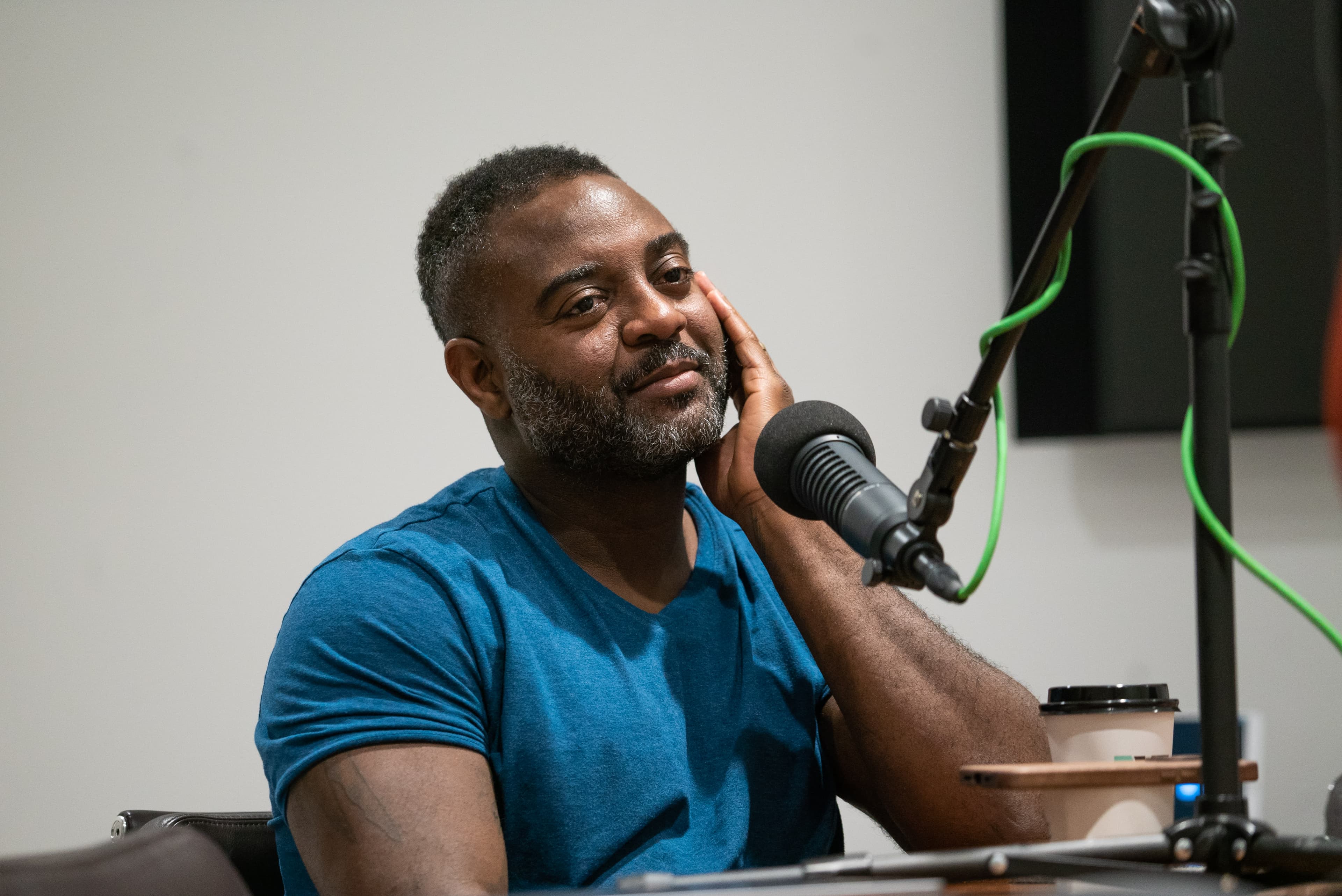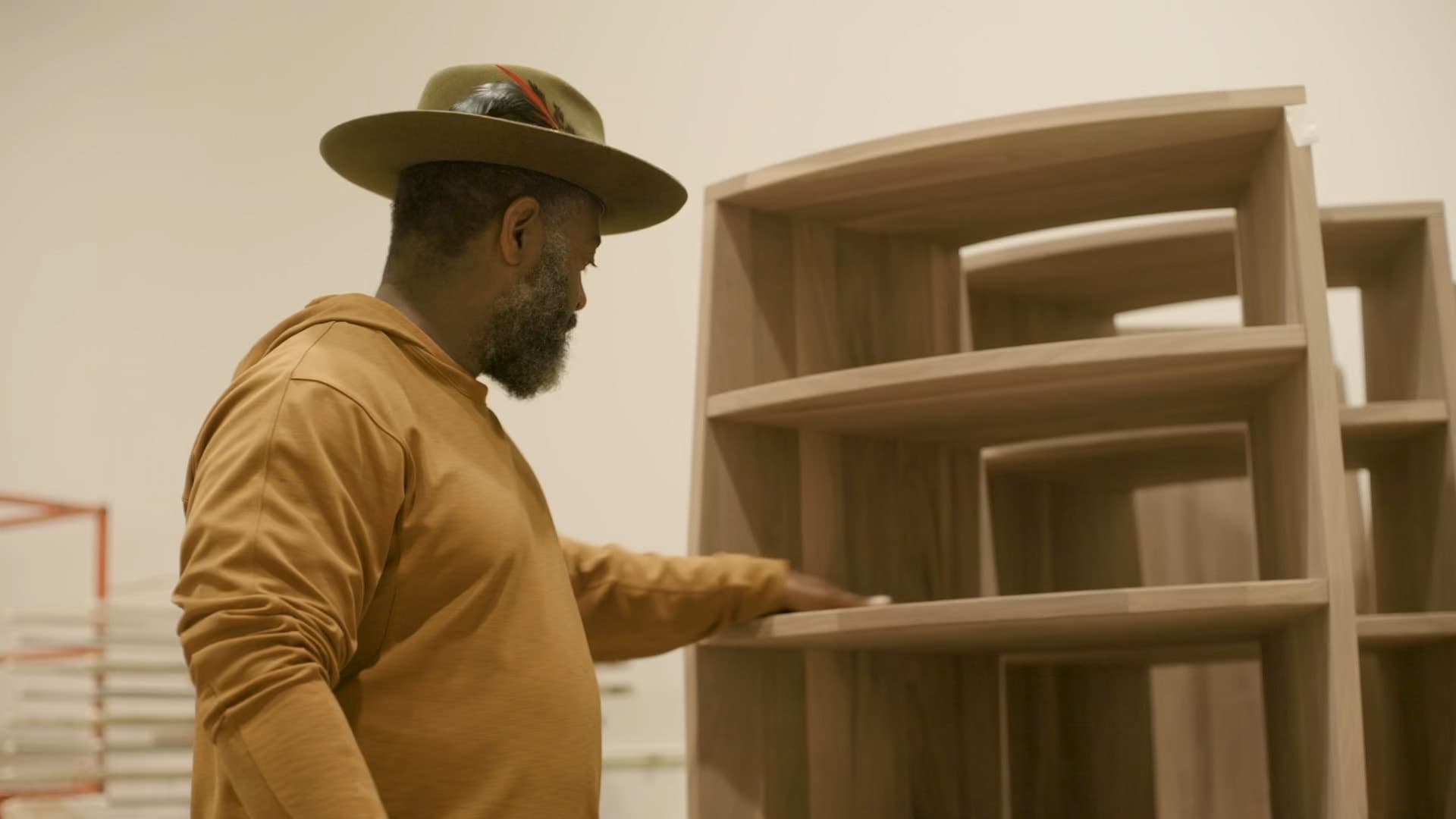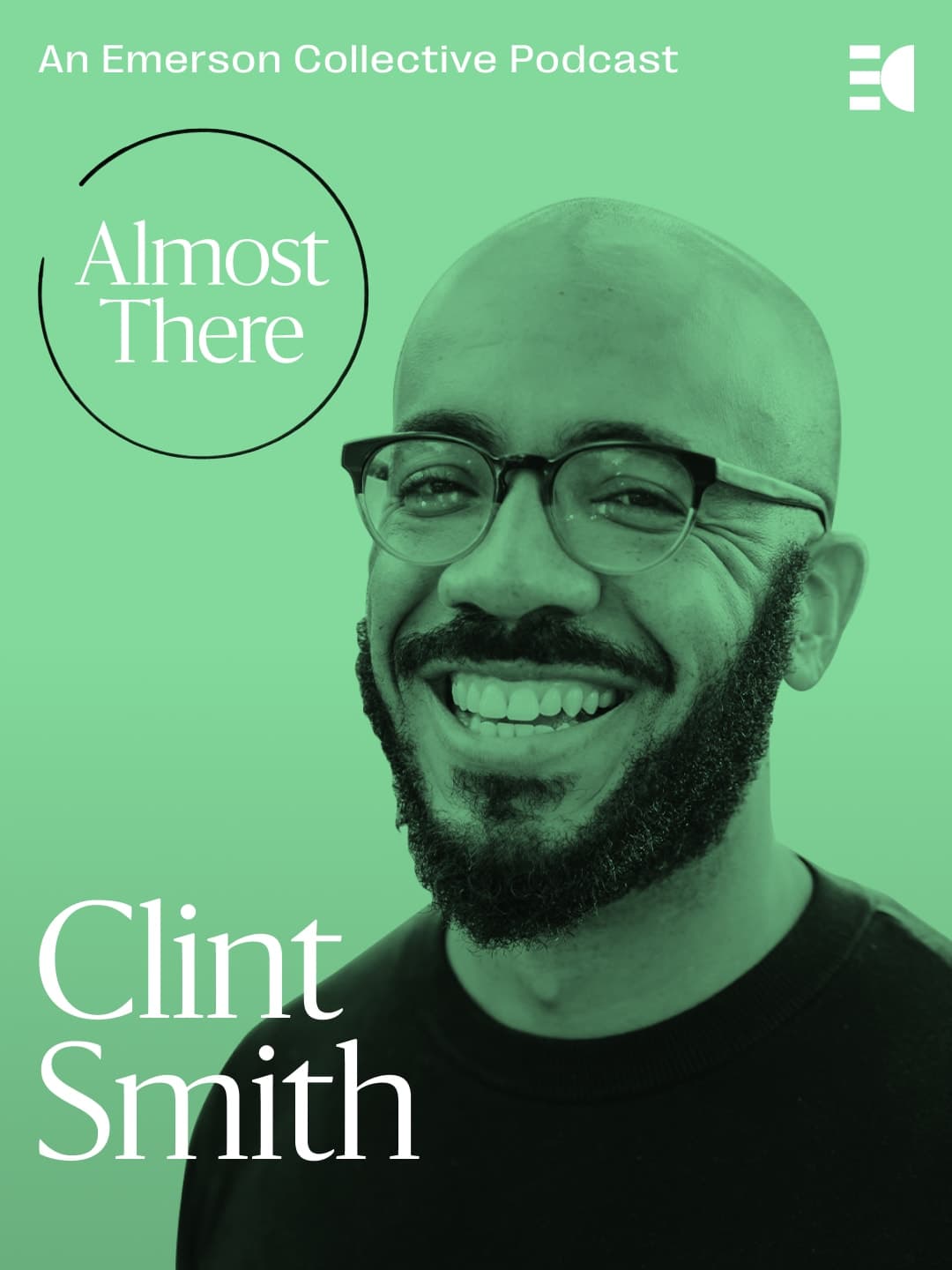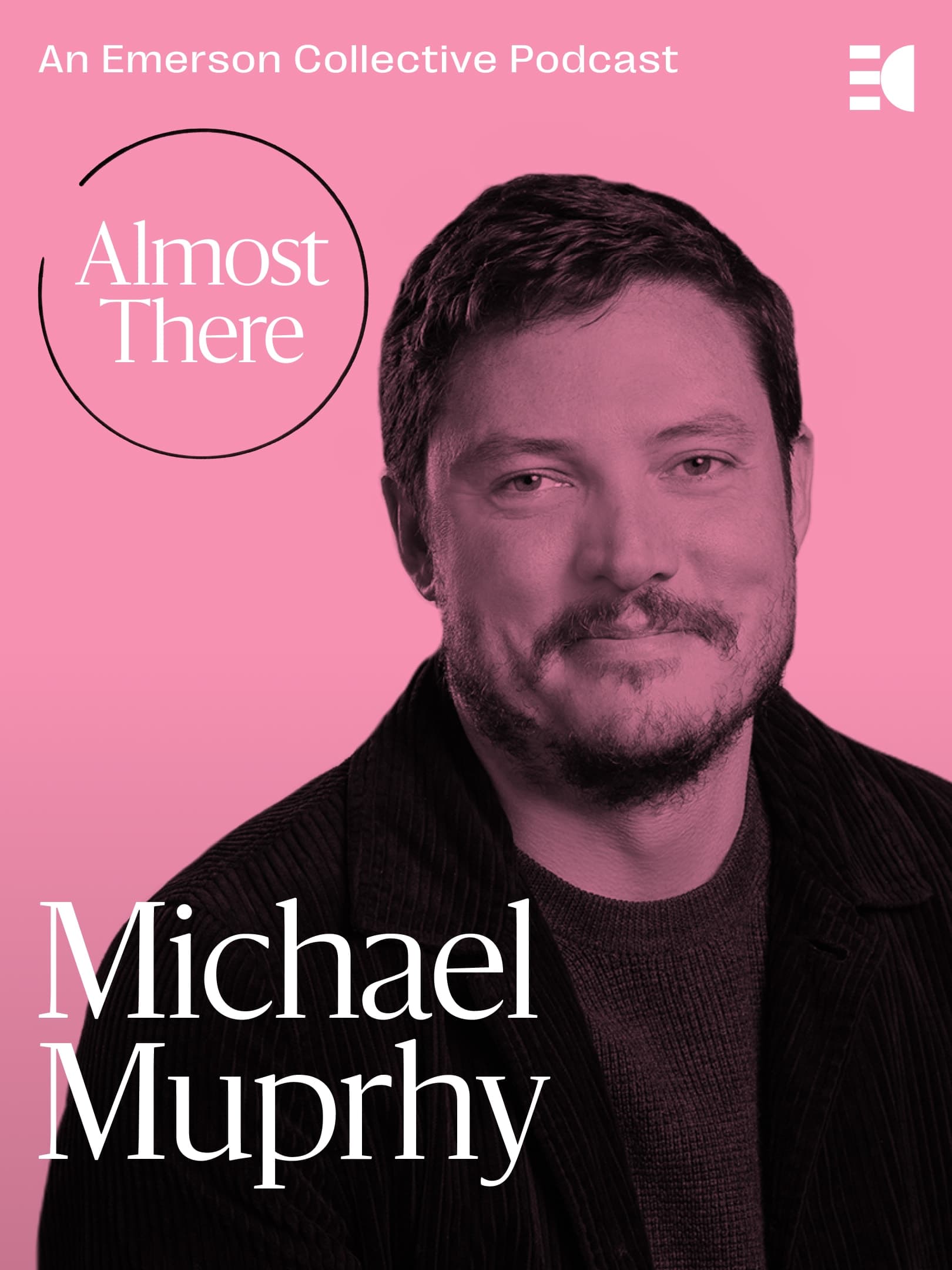Meet Dwayne Betts, the host of Almost There
Here’s how Dwayne Betts, the host of the new Emerson Collective podcast Almost There, sums up his life story: “I went to prison when I was 16. And I’ve spent the rest of my life, since then, trying to find more and more creative ways to leave it.”
Dwayne first discovered poetry while he was incarcerated, and today he has three acclaimed collections to his name, including the critically acclaimed Felon. He has also written a memoir, A Question of Freedom; collaborated with the visual artist Titus Kaphar on a collection of poems carved out of legal documents, Redaction; and is workshopping a one-man play, Felon: An American Washi Tale.
Dwayne is also a lawyer, and he has dedicated his practice to securing the freedom of incarcerated people, many with whom he served time. In 2018, he won a National Magazine Award for an essay he published in The New York Times Magazine detailing his fight to be admitted to the Connecticut state bar despite his felony record.
In a way, the new podcast is a venue for merging his creativity as an artist with the formidable analytic mind he calls on in legal work. In the podcast’s conversations, which feature Emerson Collective Fellows, Dwayne manages to weave tragedy and trauma with humor and happiness through discussions about the ways the personal experience of guests have shaped their pursuit of solutions to our hardest problems. The notion of being “almost there,” he says, is “an admission of purpose.” “When I think about “almost there,” I think it’s a recognition that there’s a destination.”
Here, Dwayne reflects on the process of making the podcast, as well as the centrality of literature and storytelling to his never-ending pursuit of freedom, for himself and for others.
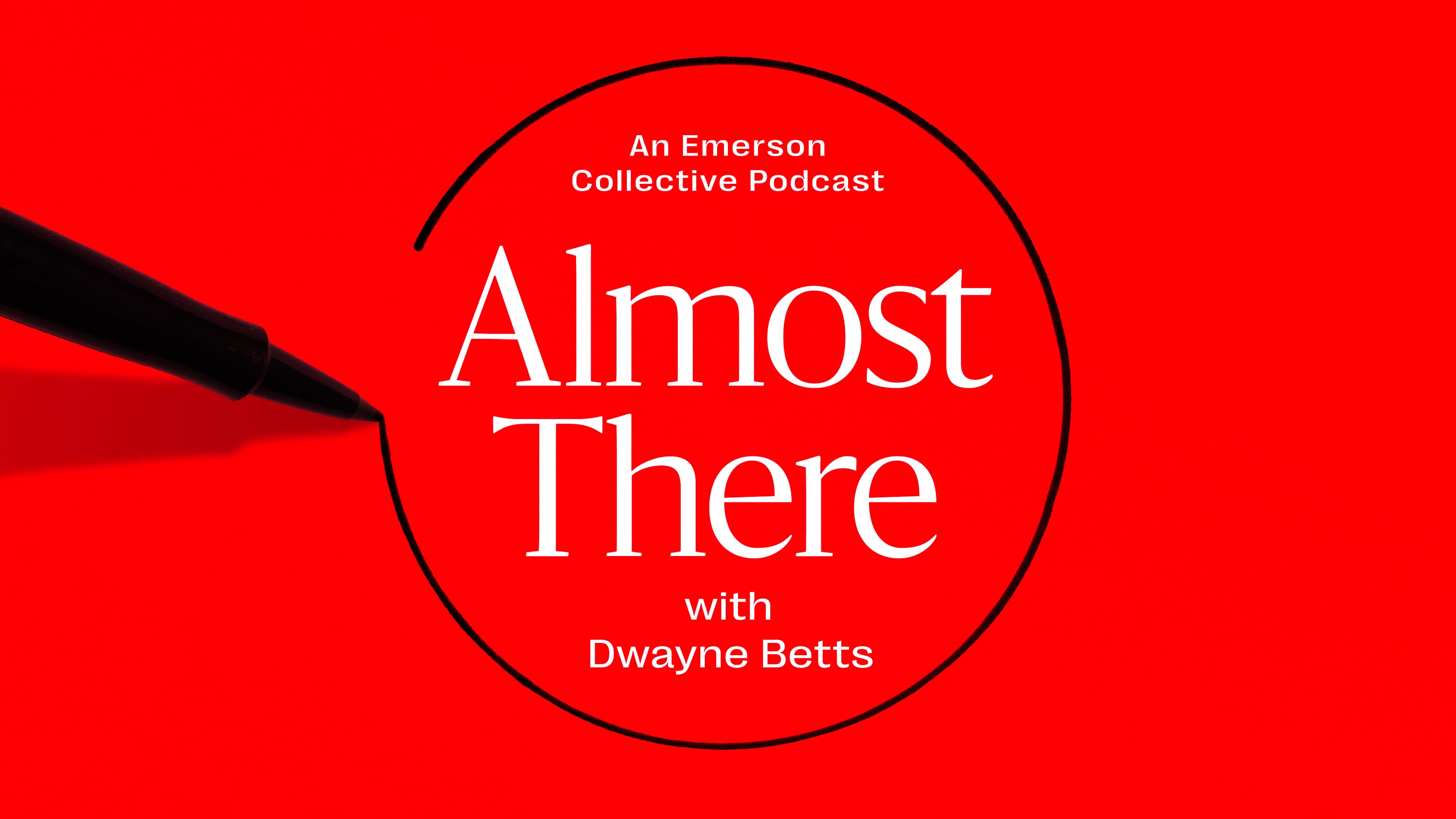
Watch the trailer for Almost There, the new podcast from Emerson Collective.
Emerson Collective: Many of our Fellows are used to being interviewed. But for this podcast, you’ve managed to have conversations with them that feel refreshingly unpracticed and personal. What were you aiming to do in these episodes?
Dwayne Betts: I think my goal is to get people, whatever their level of experience in the media, a chance to get their stories out. These folks have keen realizations and understandings, so I knew they would have something different and distinct to say if we could set a platform up for them to feel free to say it. And I think that our conversations have ended up being an opportunity to share something new that might not have gotten shared because it didn't directly relate to the work. For instance, me and Sri Shamasunder, a physician, talked about his mentor, the late poet June Jordan. You’re not going to get that anywhere else—but it turns out what he learned from her is at the core of his work!
EC: What makes a conversation work, when it works?
DB: It's a partnership. It's a dance, and it's always about how open I can be and how open a person I'm talking to can be. Part of what facilitates openness is some kind of foreknowledge, and so I've gotten better at coming to the table with information about guests.
EC: How do you prepare?
DB: Our producers at Magnificent Noise are really good. They provide me with prep materials. I look at the guest’s work and then I just go in curious. But I try not to over prepare. I try to make sure that the interview is an act of discovery for me and for the guest. It’s a loosely charted course.
EC: Has hosting the podcast changed the way you talk to other people?
DB: Yes and no. My favorite professor from law school, her name is Judith Resnik. And man, she would start talking and it would be over here, and there, and there, and there. Somehow at the end it's all making sense, but people hated her. But I loved her. I think she has just a super brilliant mind. Anyway, I got this thing where sometimes I start talking and then I end up all over the place. I start a conversation in the middle. It's like, that makes no sense. My point is: the podcast forces me to kind of slow down.
EC: Had you hosted a podcast before?
DB: Yeah. We did a podcast with Freedom Reads. But it was with writers. So the first 10 minutes they would read from their work and then we would talk for 40 minutes or so.
EC: Do you feel like those conversations were different from the ones on Almost There?
DB: Almost There has a variation that comes from how uniquely and wildly different the work is that the guests are doing. When you’re interviewing a bunch of writers, it's a challenge to make sure that it feels fresh with every conversation. The challenge wasn't there for this show. Each episode was different—though they had echoes of each other in them, natural riffs that reoccur.
EC: What’s an example of an echo?
DB: Dr. Paul Farmer came up in three different conversations, three different contexts: Sheila Davis, the CEO of Partners In Health, which Dr. Farmer founded. Michael Murphy, an architect. And Sri. And that was so good. By the way—June Jordan? She wrote a poem for Sri before she died, and I read it to him on that episode. I had to surprise him with it.
EC: Speaking of poetry—you are a poet. When did you realize you were a poet?
DB: When I went to prison, I decided to be a writer because I had to do something. I didn't want to just come home, and be like, “What are you doing?” Being a writer was something that I could own, even if I didn't tell anybody. So, after I got sentenced, I thought: I'm going to be a writer.
But I didn't know what kind of writer I wanted to be. At first, it was just writing essays, horrible stuff. You know what I mean? I had no idea what the scaffolding is of writing. So I just was writing these journal things. Then, I got sent to the hole. And somebody slides a book under my cell door, and it's The Black Poets. And Etheridge Knight is locked up, or had been locked up, and he's writing about prison. And I was like, "I'm going to be a poet. I didn't know you could do this, and now that I know you can, I'm going to do it."
EC: Were you a big reader as a kid? Did you have a relationship with books when you were younger?
DB: Yeah. My first internet search was speed reading.
EC: You remember your first internet search?
DB: Yeah, because it was the only internet search before I went to prison. For a long time, it was my only internet search, and it was for “speed reading”. I used to stay up late at night and watch infomercials. I would watch all of them, like Jack LaLanne, the Juiceman. And they had these ones on speed reading too. One of them actually was cool because it had Twista on it. He was the fastest rapper alive. He was in the Guinness Book of World Records, and he would read aloud. And then the last book I checked out from the library was Evelyn Wood's Guide to Speed Reading.
EC: What did you read as a kid?
DB: A lot of Sherlock Holmes. I read a lot of histories, a lot of war stories. I read the stuff I had to read for school. And I read Baldwin—I had read Giovanni's Room. I had read Things Fall Apart. This is stuff I read on my own. I had a friend whose mom went to college, and I figured I should read the books on her shelf.
EC: Poetry, too?
DB: No. I hadn't been introduced to poetry, which is kind of sad.
EC: Through Freedom Reads, your nonprofit, you create opportunities for incarcerated people to get introduced to poetry, to fiction, to literature. You install 500-book Freedom Libraries in prisons around the country. How did that book list come to be?
DB: We had people do surveys. And we did focus groups, people just talking with their friends. They would discuss what books mattered most to them.
EC: I should mention that the Freedom Libraries aren’t just a set of books. Freedom Reads also installs bookshelves and a stool, handmade from wood, to create a new library space in a prison where there wasn’t one before. And these libraries are truly beautiful. What went into designing them?
DB: It was a series of prison challenges, like choosing a height that avoids obscuring sight lines. And we went through a lot of different iterations of what it might be. But we ended up settling on an arc shape and we settled on wood as the species that we would use, instead of plastic, because we wanted to bring something that was natural into the space.
EC: And what was the significance of the arc shape?
DB: There’s really not anything that’s curved inside a prison.
EC: Can you recommend three books that are in the Freedom Library?
DB: There are 500, so it's hard to just name three, but Paradise by Toni Morrison. If This Is a Man by Primo Levi. And I'm going to go with One Hundred Years of Solitude by Gabriel García Márquez… I'm also going to go with A Lesson Before Dying, actually. I'll take four.
